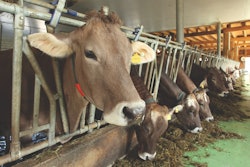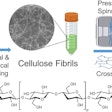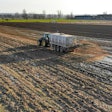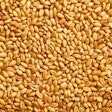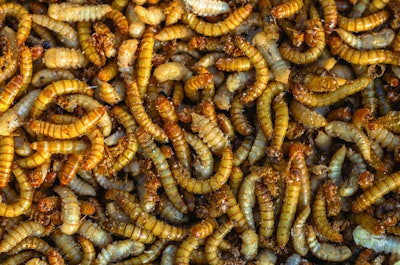
German startup will assist farmers who want to start raising insects for animal feed
FarmInsect co-founder Wolfgang Westemeier doesn’t want to sell farmers insect meal. He wants to see farmers around the world do what they do best, and start raising insects of their own.
The 2-year-old German startup is the latest in a series of companies to raise a significant round of funding on the promise of making insect meal a mainstream animal feed ingredient. But while most of their competitors plan to raise the insects themselves, selling the finished insect meal, FarmInsect is taking a different approach on the belief that farms, not factories, are the future of agriculture.
With a six-figure seed round — Westemeier said the company is unable to disclose the exact amount raised — FarmInsect plans to pilot a method for providing farmers with their own insect farming franchises. Instead of selling the finished insect meal, FarmInsect will sell the equipment and basic materials necessary to farm insects on-site, resulting in a 10% cost savings to the farmer, according to Westemeier.
FarmInsect began fundraising last fall, and continued its efforts throughout the novel cornavirus (COVID-19) pandemic. While many investment deals stalled during this time, Westemeier said FarmInsect’s business model — which promises to disrupt and localize agricultural supply chains, made the company’s value proposition to investors particularly enticing.
“In the beginning, we tried to replace fish meal, which traditionally comes from big factories and goes through three or four layers of trading,” Westemeier said, “and of course all this trading increases the margins. This way, the farmer or producer can keep most of the margin for himself.”
FarmInsect has spent most of the past two years conducting laboratory research and talking with farmers about what they need from an insect meal producer. Through these conversations, Westemeier said FarmInsect realized that the conventional factory-based approach to insect meal did not result in much benefit to the farmer beyond the perception of increased sustainability. But moving the insect production on-farm offers potential cost savings for livestock producers.
“Our main customer is the farmer, and we try to make the farmer happy in the first place,” Westemeier said, adding that cost reduction was among the top priorities of the farmers company representatives spoke with.
Consequently, FarmInsect worked to develop equipment that can be used by livestock producers to raise their own insects for feed on-site. The startup will also provide other materials to the farmer, and has developed a system that will enable the transportation of young larvae to the farmer in weekly deliveries, enabling the farmer to rear insects without having to deal with the more complicated breeding side of the operation.
Westemeier said FarmInsect will use this initial round of funding — which he said includes a mix of traditional investment and European Union research grants — to establish a pilot program at a large trout farm. That pilot will begin in September, and FarmInsect anticipates that it will begin commercial operations next spring.




